4MLinux 40.0 achieves stable status, but does anyone actually care?
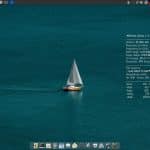
You know what annoys me most about the Linux comuniuty? There are too many gosh darn operating systems based on the Linux kernel. And yes, too much choice can be a bad thing. You see, new Linux users often find themselves overwhelmed with the number of distributions from which to choose. Even worse, having many distros causes resources to be spread too thin. Desktop Linux would be better off if developers worked together on just a handful of operating systems (such as Debian and Fedora).
But no. The Linux community can't operate as a cohesive unit. Instead, it must be fragmented and confusing. Such is life, I suppose. With all of that said, version 40.0 of 4MLinux -- an operating system that probably doesn't need to exist -- is now available for download. The lightweight distribution has officially achieved stable status, and the developers are hopeful you will choose their offering over the plethora of alternatives.
Linux malware reaches an all time high

In the past cybercriminals have tended to shun Linux in favor of more widely used operating systems, but new data indicates that this trend is starting to shift.
Statistics from the Atlas VPN team show new Linux malware reached record numbers in the first half of 2022, with nearly 1.7 million samples being discovered. This puts it in second spot for the number of new samples even though it has only one percent of the OS market (not counting Android).
System76 Oryx Pro gets Intel Core i7-12700H and GeForce RTX 3070/3080 Ti

If you want a thin and light Linux laptop, there are plenty of options on the market these days, including the excellent HP Dev One. A svelte laptop is ideal for those that travel often and highly value having something lightweight.
Some consumers, however, don't care about the heft of a Linux laptop at all. These performance-junkies want hardcore specifications... weight be damned! For these folks, the System76 Oryx Pro has long been an excellent option. This hefty portable workstation is a great choice for both gamers and enthusiasts.
Dell XPS Plus 13 Developer Edition is certified for Ubuntu Linux 22.04 LTS
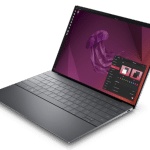
Earlier this year, HP made waves in the Linux community by partnering with System76 on a developer-focused laptop. Called "Dev One," the notebook comes pre-loaded with the Ubuntu-based Pop!_OS. This new HP machine is quite impressive, as you can read in our review.
Of course, seasoned Linux veterans were already familiar with a different major computer manufacturer selling a Linux-based developer machine. Yes, Dell has been releasing XPS "Developer Edition" models for many years -- these computers come with Canonical's Ubuntu pre-installed. Dell's XPS 13 in particular has been lauded by professional reviewers and consumers alike thanks to its balance of power and elegance.
Download Linux Mint 21 'Vanessa' Beta now

Back in April, we learned that Linux Mint 21 would be named "Vanessa." Not much was revealed about the operating system at the time, but the developers did share a small bit of information. For instance, we now know that version 21 of Linux Mint will be based on Ubuntu 22.04, and as expected, the same three desktop environments will once again be offered -- Cinnamon, MATE, and Xfce.
Earlier this month, we also learned that the controversial systemd-oom will thankfully not be included in Linux Mint 21, while the Blueman Bluetooth manager will replace Blueberry. And now, the developers have shared something much more exciting than tidbits of information -- actual ISO files! Yes, the Beta of Linux Mint 21 "Vanessa" is now available to download.
Microsoft makes massive improvements to Windows Subsystem for Android in Windows 11
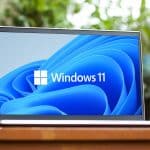
Microsoft has fully embraced Linux with the release of Windows Subsystem for Linux, opening up exciting possibilities for fans of Linux-based distros. The company has also shown support for Android, with the Windows Subsystem for Android making it possible to run mobile apps and games in Windows 11.
Now the company has made a significant update to Windows Subsystem for Android, making huge improvements to its networking capabilities.
TUXEDO Computers Pulse 15 Gen2 Linux laptop is powered by AMD Ryzen 7 5700U with 35W TDP
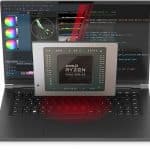
Now is a wonderful time to be in the market for a laptop that comes pre-loaded with a Linux-based operating system, as there are many great options. Linux laptops used to be a bit of a rarity, but as Linux gains popularity, these computers are becoming more commonplace. Currently, my recommendation is the HP Dev One which runs System76's Ubuntu-based Pop!_OS, as that notebook is affordable, well-built, and offers an overall excellent experience.
Today, yet another new Linux laptop is announced, this time by TUXEDO Computers. Well, technically it isn't entirely new, but actually, it is the second generation of its Pulse 15. Yes, after two years, the company has decided to refresh the computer with an AMD Ryzen 7 5700U processor (with 35W TDP) and 15.6-inch 165Hz WQHD (2560 x 1440) IPS display.
Popularity of open source software leads to security risks

The widespread use of open source software within modern application development leads to significant security risks, according to a new report.
The research from developer security firm Snyk and the Linux Foundation finds 41 percent of organizations don't have high confidence in their open source software security.
HP Dev One Pop!_OS Linux laptop [Review]
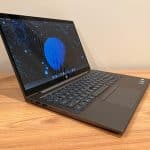
When I first learned that System76 and HP were partnering on a laptop running Pop!_OS, I was absolutely shocked. After all, System76 is a computer manufacturer, so HP is sort of one of its competitors. Not to mention, Pop!_OS isn't exactly a well-known operating system outside the Linux community -- it doesn't carry the same name recognition as Ubuntu, for instance.
Regardless of why this collaboration happened, the HP Dev One laptop is officially here, available to anyone in the United States that has $1,099. We have been testing the new developer-focused notebook and we have definitive opinions to share, including whether or not you should buy it. So, without further ado...
Manjaro Linux 21.3 'Ruah' is here with GNOME, Xfce, and KDE Plasma

Manjaro is one of the most popular Linux-based desktop operating systems these days, and it's not hard to see why. The distribution is based on the rock-solid Arch, but unlike that distro, Manjaro is very easy to install and use thanks to the excellent Calamares installer. In other words, it has all the benefits of Arch, but without the hassles and headaches. This makes it a great choice for both Linux experts and beginners alike.
And now, during LGBT Pride Month, Manjaro 21.3 "Ruah" becomes available for download with Linux kernel 5.15 and Calamares 3.2. There are a trio of desktop environment options -- Xfce (4.16), GNOME (42), and KDE Plasma (5.24). While all three DEs are great, the Xfce Edition is the primary focus with this particular operating system.
Symbiote is an extremely dangerous, 'nearly-impossible-to-detect' Linux malware

Fans of Linux-based operating systems often cite greater security as the basis for the love of their chosen distro. Whether Linux distros have better security track records than the likes of Windows 11 and macOS because they are inherently more secure or because they are simply not targeted as much as very much open to debate, but Linux remains fallible, nonetheless.
Going some way to prove this is the Symbiote malware discovered by security researchers from BlackBerry and Intezer Labs. Symbiote is worrying for a number of reasons including the fact that it is described as "nearly-impossible-to-detect". It is also extremely dangerous piece of malware that "parasitically infects" systems, infecting all running processes and giving threat actors rootkit functionality, remote access and more.
HP Dev One laptop running System76's Ubuntu Linux-based Pop!_OS now available

Last month, the open source community was abuzz with excitement following a shocking announcement from System76 that HP was planning to release a laptop running the Pop!_OS operating system. This was significant for several reasons, but most importantly, it was a huge win for Linux users as yet another hardware option was becoming available. Best of all, HP employees have been trained by System76 to offer high-quality customer support. If you aren't aware, System76 support is legendary.
At the time of the announcement, details about the hardware were a bit scarce, but I am happy to report we now have full system specifications for the 14-inch HP Dev One laptop. Most interestingly, there is only one configuration to be had. The developer-focused computer is powered by an octa-core AMD Ryzen 7 PRO 5850U APU which features integrated Radeon graphics. The notebook comes with 16GB RAM and 1TB of NVMe storage, both of which can be user-upgraded later if you choose.
Say goodbye to Microsoft Windows 11 and wave hello to Ubuntu-based Linux Lite 6.0

Is Windows 11 a good desktop operating system. Absolutely. Is it the best desktop operating system? Well, that is harder to answer. Ultimately, if you are 100 percent dependent on Windows software, then yes, Windows 11 is the best operating system... for you. If you can get by without using software designed for Microsoft's OS, however, a Linux-based operating system might be the better option -- especially if you have an older computer.
You see, Windows 11 is very polarizing. The operating system features radical changes to the user interface (such as a centered task bar) which some users do like, but many others do not. Not to mention, the system requirements will leave many still-capable computers unable to upgrade without using unofficial hacks. Even worse, computers deemed incompatible could eventually stop getting updates! Linux doesn't have these problems.
Surfshark VPN for Linux gets proper GUI

What makes Surfshark one of the best paid VPN services on the market? Well, besides being extremely affordable, it has no device limit and is very easy to use on many platforms, including Windows, macOS, Android, iOS, and iPadOS. Not to mention, the developers are constantly adding new features -- they don't rest on their laurels. I highly recommend the service.
A desktop Linux version of Surfshark has been available for a while now, but sadly, it did not have a graphical user interface (GUI) -- you had to configure and run it from the terminal. While this technically worked, it was clunky and annoying, making Surfshark on Linux inferior to versions for other operating systems.
Plex Desktop for Linux comes to Snap Store with flatpak version on the way
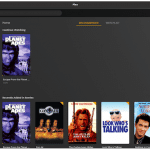
If you are a fan of pirating TV shows and movies, you have undoubtedly used Plex over the years. If you aren't familiar, the service uses a server/client concept, where you store your media on one machine and then stream it to another device. While Plex technically can be used for legally-obtained media, I predict that many (if not most) of its users are watching pirated content. Look, I'm not judging... I'm just trying to be honest.
And now, the Plex Desktop app and new Plex HTPC client app are both available for Linux -- but only from the Snap Store. Don't like Canonical's snaps? Don't worry, according to a blog post, the Plex developers are planning to roll out flatpak versions eventually too. Before anyone starts arguing about snap vs flatpak, let's just celebrate another big win for the Linux community overall. Okay?
Recent Headlines
Most Commented Stories
Windows 12.1 is everything Windows 11 should be -- and the Microsoft operating system we need!
Apple Intelligence will launch in beta and that’s unacceptable for a trillion-dollar company
© 1998-2024 BetaNews, Inc. All Rights Reserved. Privacy Policy - Cookie Policy.